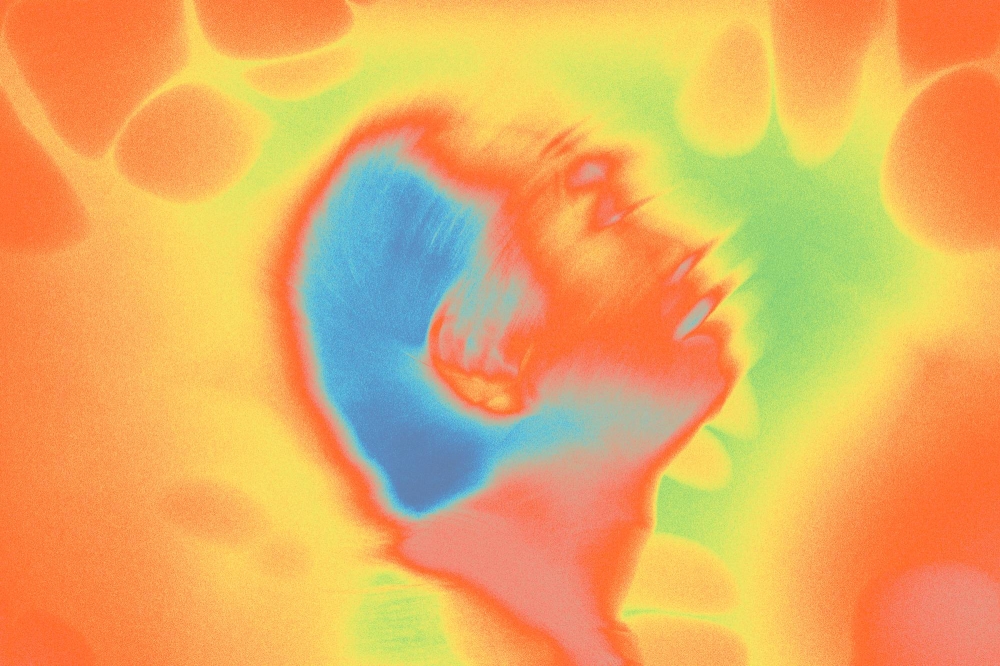Boiling Point
For aging Japan, a troubling link between heat and dementia
As the world endures what could turn out to be the hottest summer on record, it is reckoning with the myriad impacts of that extreme heat. At the same time, a lesser-known consequence is coming into view: its effect on the brain.
There is a growing body of evidence that high temperatures, which are being made more likely and pushed higher by climate change, can take a toll on our brains in numerous ways, affecting students’ test performances, reducing worker productivity and making some of us more irritated and aggressive.
Worryingly for Japan and its rapidly aging population, some of the new findings highlight the effects of heat on neurodegenerative diseases such as Alzheimer’s and Parkinson’s.
The number of people in Japan age 65 and over with dementia — an umbrella term for the loss of memory, language and other cognitive abilities severe enough to interfere with daily life — is projected to soar to nearly 6 million people by 2040, meaning about 1 in 7 elderly people would have the condition. Japan already has the highest proportion of people with dementia among OECD countries; by 2040, the disease’s prevalence will rise to nearly twice the OECD average.
“While our understanding of these mechanisms (through which heat affects our brains) is growing, it’s clear that rising temperatures pose a significant threat to brain health, particularly for those already at risk of neurodegenerative diseases,” says Clayton Page Aldern, author of “The Weight of Nature: How a Changing Climate Changes Our Brains.”
The latest research indicates that heat stress is likely to worsen the condition of people with Alzheimer’s disease — which accounts for over half of all dementia cases in Japan — by making them more irritated or exacerbating their cognitive decline.
“It is possible that heat triggers the onset of Alzheimer’s among people who would not have had it (were it not for heat),” says Masahisa Katsuno, professor of neurology at Nagoya University’s School of Medicine.
Specifically, Katsuno refers to 2019 research based on a study in Australia showing that hospitalizations and post-hospital discharge deaths for Alzheimer’s increased by 51% and 269%, respectively, during heat waves.

A 2022 study in England, meanwhile, found that heat-related dementia hospital admissions could increase by almost 300% by 2040 under a high-emissions scenario.
Another study cited by Katsuno examined the impact of urban risk factors, including heat waves, traffic noise and air pollutants, on the worsening of dementia symptoms. The 2016 research in Spain concluded that, when the maximum daily temperature hit 34 degrees Celsius or above, dementia-related emergency hospital admissions “showed a clear rise.”
These findings track with the experience of health care professionals.
“Generally, (neurology) doctors know that when it gets hotter, they see more patients,” Katsuno says.
Brain stress
There are a number of ways in which heat is thought to cause or intensify neurodegenerative conditions.
Extreme heat triggers neuroinflammation, which, when prolonged, can damage brain tissue and worsen protein misfolding — a hallmark of diseases like Alzheimer's — says Aldern.
In addition, heat stress has also been linked to memory impairment in animal studies, particularly affecting the hippocampus, a crucial region in the brain for memory formation and consolidation, he says, noting that the addition of other environmental factors, such as air pollution, may further worsen the effects.
On a microscopic level, high temperatures are extremely stressful to cells, causing oxidative stress — an imbalance of free radicals and antioxidants that leads to cell damage — and inflammation, Katsuno says. In addition, heat can activate a mechanism called excitability or toxicity, which causes cells to overwork themselves to death.
The impact of heat on the brain can also be explained in the increase in cerebral hemorrhages, or strokes, which are another common cause of dementia, he says.
“When people are exposed to heat, they try to cool their body temperature by sweating,” he says. “Water in their bodies gets lost through perspiration, leading to the thickening of their blood. This makes it easier for blood clots to form, and for strokes and heart attacks to happen. That is a well-perceived risk.”
The risk that heat represents for people with dementia also manifests indirectly. They are prone to forgetting to stay hydrated, for example, and the harm caused by falls — which they are more likely to have — is potentially exacerbated by heat.
Atsushi Sakurai, a clinical professor at Nihon University’s School of Medicine, has studied the effect of high brain and body temperatures on mild brain injury. In his experiment, a group of rats warmed to 39 C before and after a traumatic brain injury saw their contusion area and volume significantly enlarge in three days, compared with a group that suffered the same injury but retained a normal temperature. The findings suggest that temperatures could affect the prognosis for such injuries.
“My research concerns acute injury, not long-term illnesses like dementia,” he says. “But I think we can say that, if someone has a stroke or a brain injury (through a fall), their brain damage could worsen if temperatures in their environment are higher.”
Lack of urgency
Despite the growing evidence that heat has an impact on neurological diseases and the increasing number of people with such conditions in the country, there are few signs that government officials or the scientific community in Japan have a sense of urgency when it comes to exploring the link.
“I have not come across symposiums and such at academic conferences focusing on extreme heat’s impact on brains,” says Aya Ogura, an assistant professor who specializes in brain image data analysis at Nagoya University and is a colleague of Katsuno. “I feel the topic has yet to attract attention in Japan.”
Katsuno also acknowledges the scarcity of — and the need for — homegrown studies about the connection.

The reality is, there is still much to be learned about exactly how heat alters our brains. Experts say there’s a huge research gap in this area, compared with what we know about heat’s impact on the cardiovascular, respiratory and immune systems.
Last year, Japan enacted a basic law on dementia outlining several policy priorities to make the country more supportive of people with the condition. One of them is shoring up research on the mechanism, prevention, diagnosis and treatment of dementia.
Yoshimasa Tosaka, counselor for general dementia policy planning at the health ministry, says the ministry is cautiously watching research trends.
He notes a 2023 paper highlighting research that an average temperature rise of 1.5 C in the summer months increased the risk of dementia-related hospital admission by 12%. The authors said that temperature extremes and fluctuations were also associated with stroke incidence and severity, migraine headaches and the worsening of multiple sclerosis symptoms.
But Tosaka says there’s not sufficient evidence yet to warrant ministry-led research on the ties between heat and dementia.
Meanwhile, the 2020 Lancet Commission on dementia prevention, intervention and care identified three new “modifiable risk factors” for the condition. The commission says 40% of dementia cases can be prevented or delayed by targeting 12 risk factors, up from nine in its previous report in 2017. The three new factors are head injuries in midlife, excessive alcohol consumption in midlife and exposure to air pollution in later life. The report did not mention exposure to extreme heat.
“We need to monitor the impact (of heat) in the long term to establish the link,” Tosaka says. “It’s not so hard to get a snapshot picture of the onset of dementia at one point, but to study the effects long-term, while eliminating all the other (confounding) factors, such as the use of air conditioners, diet and exercise ... it just sounds like a huge undertaking requiring enormous costs and effort.”
But the use of digital tools, such as smartwatches and other wearable devices, may lower the bar for more ambitious data-driven research on dementia in the future, he suggests.
“It is becoming easier to obtain various health-related data,” Tosaka says. “A social experiment that was not possible in the past may become possible.”
Aldern, however, argues the omission of extreme heat from the 2020 Lancet Commission is indicative of how we are only just beginning to understand the severity of heat’s neurological health risks as they relate to climate change, pointing to numerous studies published since 2020.
“Climate change is only going to bring more extreme temperatures, and without behavioral change or technological adaptation, that means more and more people are going to be exposed to extreme heat,” he says.
“Given this prognosis, I’d argue that it’s time for health organizations to consider including heat exposure in their risk assessments for neurodegenerative diseases.”

How to keep people with dementia from getting sick due to heat
People with dementia are at higher risk of heat-related illnesses because they have less awareness of their body temperatures compared with those without the condition and especially younger adults. As with older people in general, the demographic to which people with dementia overwhelmingly belong, they are also more likely to suffer from dehydration, as they have less muscle mass, where much of the body’s water is stored.
Yoshiko Takeishi, a nurse and adviser for Secom Medical System, says that people with dementia lose track of time and dates and often wear clothes that don’t fit the season. She recommends their carers make sure they wear clothes that keep them cool.
People with dementia also need help in drinking enough water. A daily consumption of at least 1.2 to 1.5 liters of water is recommended, and it is helpful if family members or carers keep track of their daily intake by dividing drinks into smaller bottles and keeping these bottles close to the person with dementia so they can find them easily, Takeishi says.
Mugicha (barley tea) is good for the body as it is rich in minerals. Sports drinks and fruit juice are fine, too, but people on a carb-restricted diet should consult their doctor, she says.
If they hesitate to drink all of the amount required for the day, they should not be forced to do so. Instead, it’s better to offer seasonal fruits and vegetables with high water content, such as watermelons and cucumbers, Takeishi suggests.
For older adults in general, precautions include avoiding going out when a heatstroke alert has been issued, staying in a cool place and keeping the room temperature at 28 C or lower.
Signs of heatstroke include flushed skin, a racing heartbeat, a dry mouth, a state of mental confusion, a headache, nausea or the color of urine being darker than usual.
For first aid, take the person to a cooler place, loosen clothing to let air in and place ice packs against the neck, under the arms and in the groin area, where large blood vessels are, thereby helping to cool the body quickly. If symptoms don’t improve, seek medical help immediately.

